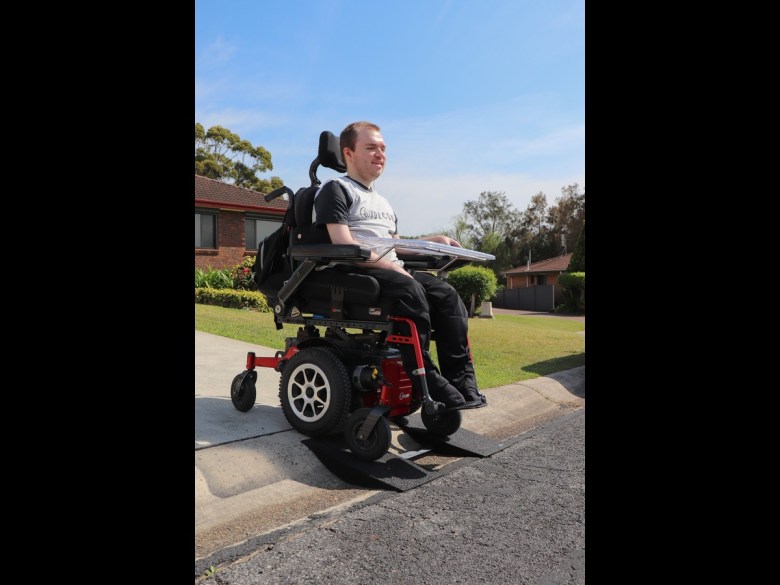When you think of sustainability, what’s the first thing that comes to mind? It’s likely things like recycling, or electric vehicles or solar panels.
Sustainability in accessible technologies are probably not top of mind in that list. But it is top of mind for Tyrex, which specialises in recycled rubber products including access ramps and other products.
The company was established in 1990, and its founders – both named Peter – wanted to use recycled car tyres to make new rubber products, keeping the tires out of landfill or incinerators.
“It was a bit of an achievement, and something we’re still very big on at the moment,” said Mark Midson, sales manager at Tyrex.
The rubber comes to Tyrex in shredded form, in small pellets around the size of a grain of rice. These are then mixed with a polyurethane UV-resistant binder and shaped into different products.
The company’s sales have doubled over the past two years, pushing up its rubber usage from 200 tonnes to 400 tonnes a year. It’s expected to hit around 500 tonnes of rubber this year.
Midson said some clients in the disability sector, like builders and occupational therapists, approach Tyrex because they are looking for an environmentally sustainable alternative to virgin rubber.
“I think the environmental factor is just like the icing on the cake. A lot of the building industry is starting to talk to us because of that reason,” he said.
The commercial market, he added, is “starting to really care” about their environmental impact, with an increase in what he calls “environmental enquiries”.
He believes it’s important for products like those that Tyrex produces be environmentally friendly.
“I think it’s just common sense that we should be repurposing materials wherever possible,” he said.
Tyrex is also part of Tyre Stewardship Australia and has taken a lead role in advancing the circular economy in rubber, including by recycling the rubber pellets it doesn’t use so it can be reused elsewhere.
Down the track, it hopes to be able to offer a similar service to clients, so that access ramps and other products could be returned when no longer needed and the materials used to make new Tyrex products.
“We’re pretty passionate about the environment here, and we’re very passionate about the products we make and the people they help. [We want] to keep moving forward and utilising as much of this material as possible because unfortunately, there’s still a lot of it going to waste,” Midson said.
Tyrex’s commitment to disability positivity doesn’t just end with its products. It also employs several people with disability in its business.
As well as offering sustainable access products, Tyrex also works with occupational therapists to educate them on standards and practices relating to ramp installation, so that the right product is used in the right space to enhance accessibility.
It is also looking to collaborate with a not-for-profit that employs people with disability, to produce road safety products. This, Midson said, would keep around 30 to 50 people with disability employed.
“We’re very passionate about the disability space, and not only supplying it, but supporting it,” he said.
“We live in the disability space. To be able to employ people… and give them the opportunity and to support people that are struggling with mobility and things – it’s just awesome.”

